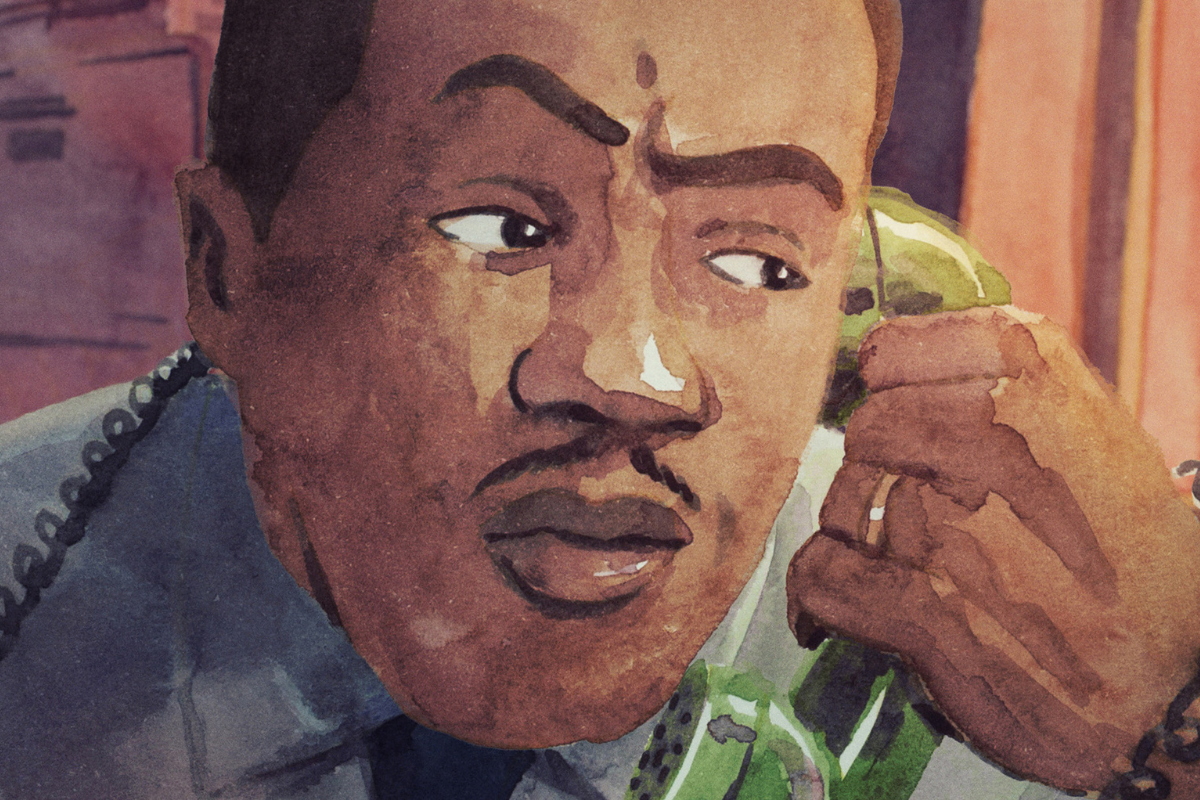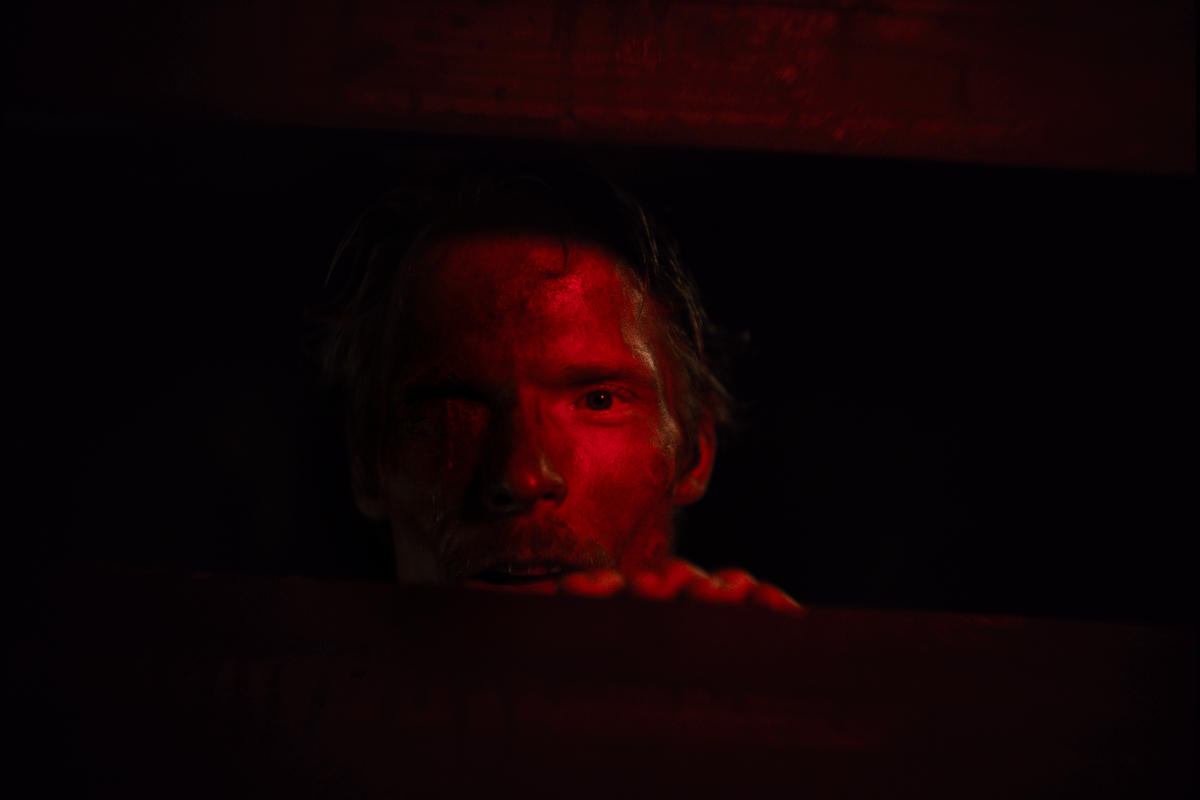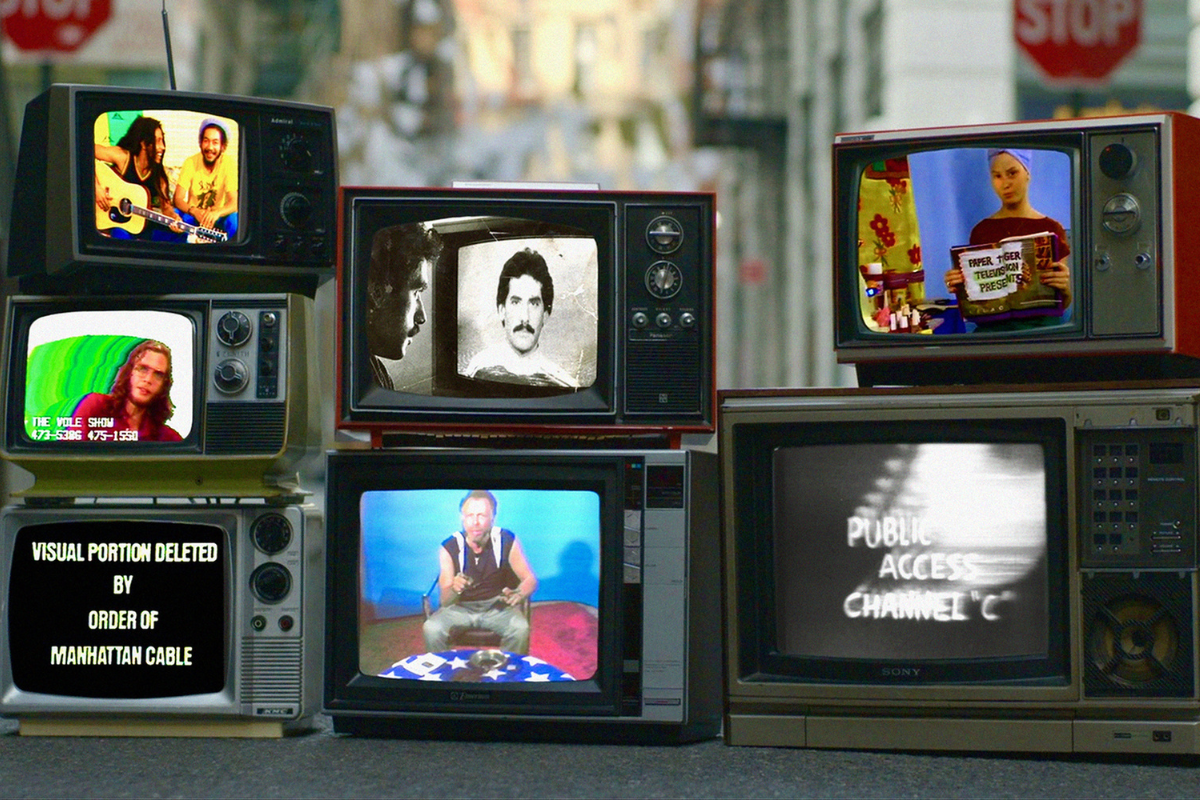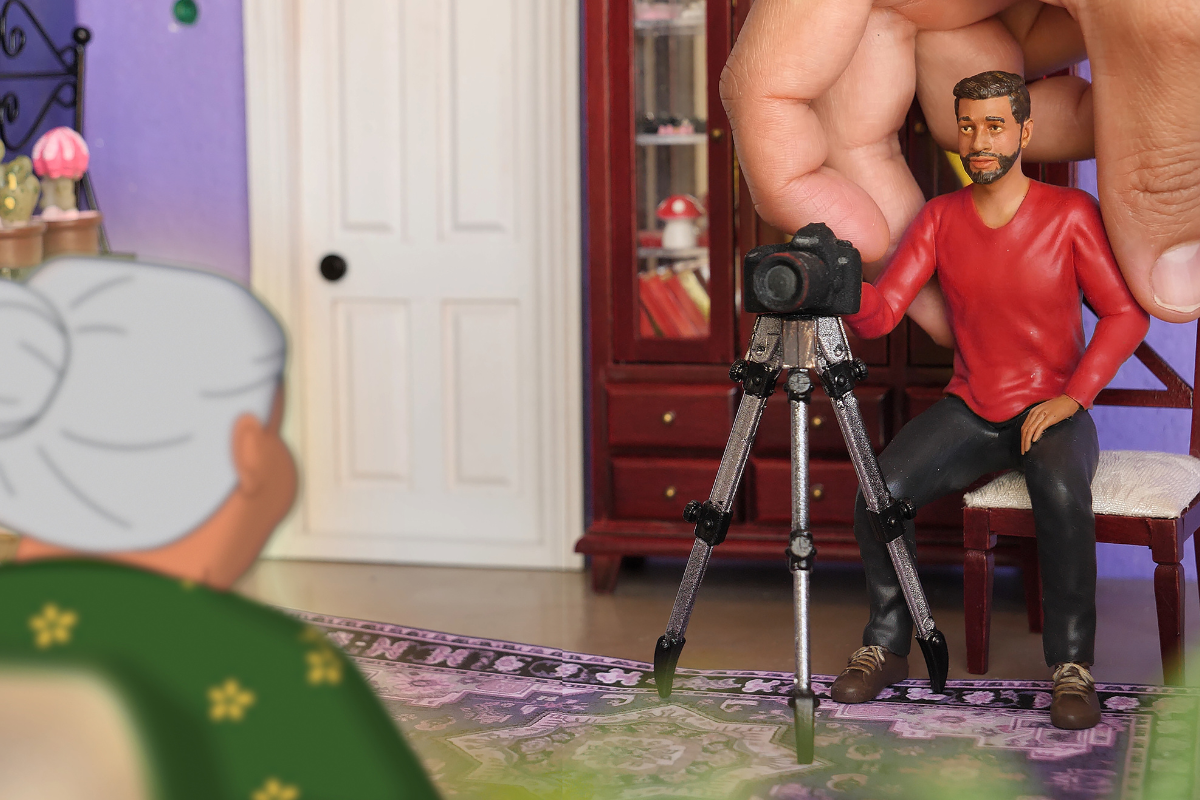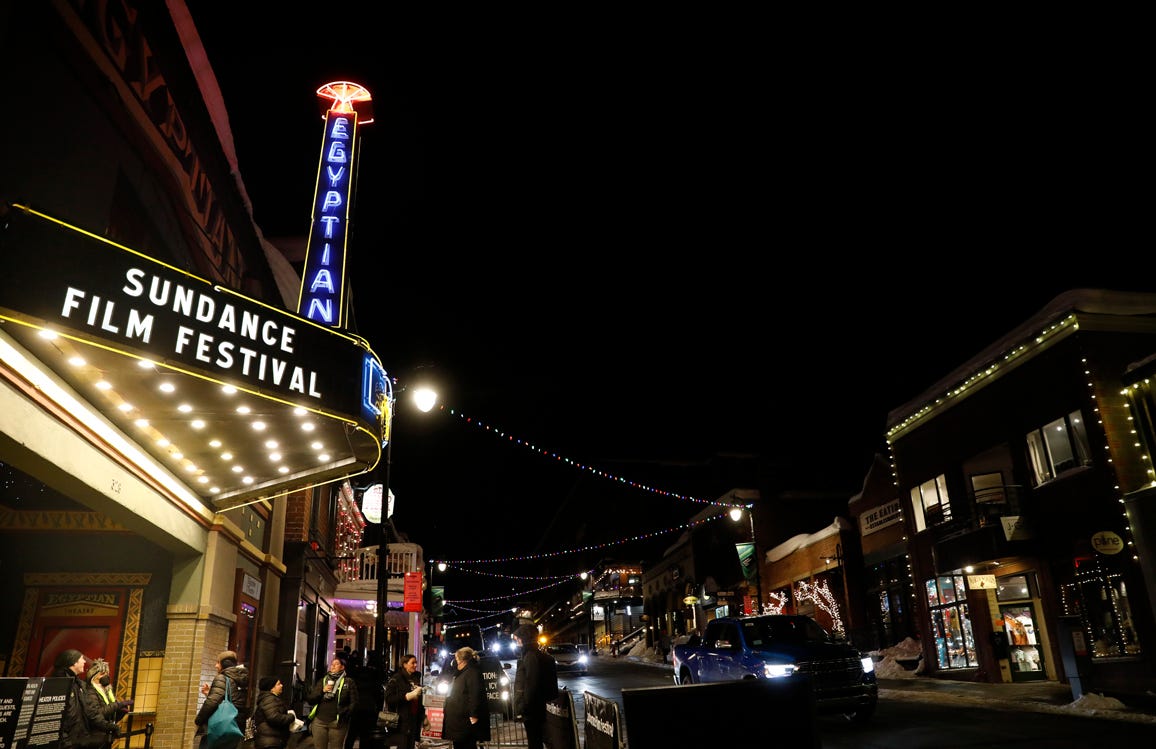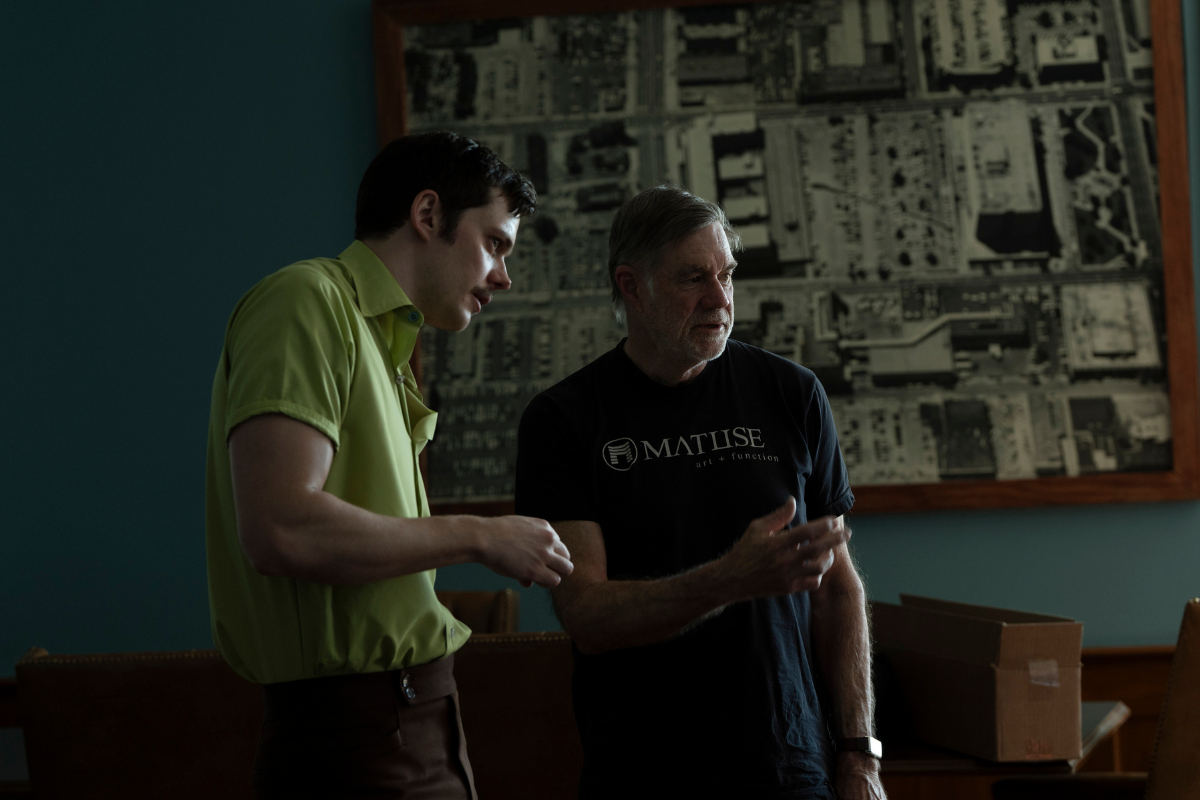A Complex Story That Needs to Be Written in History: A Conversation with ‘God Save Texas: The Price of Oil’ Documentarian Alex Stapleton
Alex Stapleton shares how she became involved with the HBO project, what it was like turning the lens on herself and her family and their history in Houston, what stories she’ll be focusing on next, and what she hopes audiences will learn and take away from watching this three-part docu-series.
In GOD SAVE TEXAS: THE PRICE OF OIL, Houston born and raised filmmaker Alex Stapleton turns her lens on her hometown to chronicle the impact of the Texas oil industry on Houston residents, specifically Black and disenfranchised communities, including the lives of her own family, who arrived in Texas in the 1830s as slaves and have stayed in the state for nearly 200 years.
Tracing her personal story as a descendant of slave owners, Stapleton widens her focus to show how Black history is vital to the Texas oil boom, yet has largely been left out of the history books. Despite representing 13% of the U.S. population, Black and brown people only make up 6% of the oil and gas workforce, with few in leadership positions, and historically, their neighborhoods are more likely to suffer the encroachment of refineries and chemical plants. Residents of Pleasantville, a Houston housing community developed in 1948 for Black veterans and their families, and similar “fenceline” communities risk exposure to elevated levels of toxicity and pollution.
Illustrating that environmental racism is a civil rights issue, and by giving voice to the very people who face the human cost of Texas’ biggest money-maker, GOD SAVE TEXAS: THE PRICE OF OIL is a call for a long overdue reckoning.
With being a documentarian comes a great responsibility to tell history with integrity and justice. There’s a responsibility to give voice to all that paints the overall big picture. And oftentimes, as the filmmaker and viewer, you have to find the common grey line in between the bitterness and hope. That’s exactly what you get in HBO’s original documentary trilogy, God Save Texas.
One of the featured documentarians, Alex Stapleton, recently spoke with Script about her involvement with the project, from having read the book, God Save Texas: A Journey into the Soul of the Lone Star State, written by Lawrence Wright, that ultimately served as the stepping stone to tell these stories. She also shares what it was like turning the lens on herself and her family and their history in Houston and using that as the throughline to tell parallel stories about the Black experience and the oil and gas industry and the toll it has taken on the community. Last but not least, Alex talks about what stories she’ll be focusing on next and what she hopes audiences will learn and take away from watching this three-part docu-series.
This interview has been edited for content and clarity.
Sadie Dean: How did you get involved with this?
Alex Stapleton: I had read the book on my own before hearing about this, and was immediately drawn to so much to what Larry [Wright] said, and felt very kindred to him and his perspective on Texas. But then I got a call from Alex Gibney's company, Jigsaw - and he's a legend and really look up to him in a major way - and I learned about the partnership that they had, and they had already brought in Rick [Linklater] to do the first film, and were looking for two more Texas-based filmmakers. And I was like, 'I will do this! I don't care what I have to do.' But it was funny because I was actually still living in LA, I left the state over 20 years ago. And so that's kind of how it got started.
I met with Larry, he was so excited that I was from Houston, because he really wanted to feature an oil story. And so we kind of got into it. And Larry really wanted to focus on, I think for him, it's really important that the country understands how oil and gas works, how it's made, when we debate about it, we really should have a broader understanding of how the sausage is made, right? And so, I was very intrigued, and we were taking meetings in Houston, I was here prepping right before COVID. And then COVID hit, and I was in the house with my mother, I was staying with her. Because I was home for this extended amount of time. And then between her and all of her genealogy work and just starting to really pay attention to all the stuff that she had, I mean, that's like a big part of every day for her life, right? And then, me doing this, it's kind of like these two worlds collided, and I was like, ‘Wait a minute. We've been here for this long? And what is our role?’ And I'm learning all this history, but where were Black people in this story? And I guess that's how the marriage happened. [laughs]
Sadie: You mentioned this in your episode, It's a complex story that needs to be written in history.’ And it's so complex, especially with your background and your family. As a storyteller, a documentarian, what was that approach to putting yourself in there and your story as the throughline?
Alex: Well, it's funny, cuz this is like right next to me [holds up a rock with inscription] it says, "Write your own story." This is from my mother, by the way, who's always like, 'You tell everybody else's story, you need to write your own,' and she said that for years and [laughs] literally this happened. I've been making docs for 20 years and I have just fallen into the groove – I feel very blessed with all the stories that I've been able to tell, all the worlds that I've been able to enter and all the knowledge I've gotten for each film and each project. So, in doing this... I saw a very early cut of Rick's film and his approach to telling the story, but it's Rick, you know? He's one the most famous directors on the planet and it was so cool how he was interweaving his movies, his narrative with his own story. But I guess too, in conversations with Larry, when I started telling him, 'Larry...I'm struggling because I want to tell this story. But also my Texas is very different than your Texas. And I almost feel like there's an erasure of where I come from.' And we talked for so long. And he was like, ‘Yeah, so what we need to do is we need to tell your story.
I have to give credit to him for really pulling it out of me...And especially for me, I'm trained to find that in other people and other subject matters. Never done it before, it was very interesting. Very scary. But what I really loved that I got out of it was more so than turning the lens - it's not about me... being able to tell the legacy of my family and to have done it with HBO. I mean, this will forever be in existence. And I think in the film, like when we're at the San Jacinto Monument, I talk about that, like our homes are our monuments.
But also, I feel like filmmaking is also a way for us to memorialize the stories and to keep the history and it is now more important than ever, especially in the state of Texas, but also in this country to do that, because we're in the middle of chaos and craziness. We have a governor that is trying to just completely erase history... I'm charged about it, because just this morning, I saw a clip of Christopher Columbus cartoon that the state of Texas put out there to educate kids about Columbus and his connection to slavery. And it's so whitewashed, it's insane. And it really freaks me out that there are people that are so obsessed with keeping their own power that they would brainwash constituents and voters to only think that their narrative matters, and that everyone else is scary, and we don't need to understand that. So, I feel like the film will take even more of a charge that goes beyond oil and gas, to be honest, especially this year in an election year.
Sadie: As a documentarian, there's ways that when you talk to subjects you can get stories out of them and try to hit specific points. But in most cases, they’ll say something that’ll change everything for good. Did you see that with your family? Or maybe even yourself?
Alex: Absolutely. Not me, but my family. I kind of had this rough overview of what I wanted to do, and I didn't even understand. Like my aunt Barbara, who unfortunately had a flesh-eating disease on her leg. It's like all these things I knew, but I had never put it together with like floodwater, contaminated water, industry - my family has because they're here every day. And again, like I said, I was gone for 20 years. And when I left, no one talked about industry, no one really in the 90s, nobody was talking about oil and gas. I mean, activists were but it wasn't like a household fence line community conversation - they were not, I think, as loud as they are today.
And so, I just never thought about it, I just never put the pieces together. And when my family just so naturally and organically and so beautifully educated me about what had been going on for them, I was like, ‘OK, how do I hitch my wagon as a storyteller to this and try to weave in different layers of the story?’ And how do I use my family to zigzag in and out of oil, but also contributions of Black folks to the state, an erasure of history, you know, all these things in an hour? [laughs] How do I do this?! And how do I educate the public on a basic level? I'm giving you a little bit of history, too, because none of this is really discussed. It's not the most artistic film, in my opinion, I don't have a lot of real estate to have these moody scenes of just reflection. I'm just trying to give you as much as possible because this is life or death for people.
Sadie: How much prep time did you have for research, and being able to get your family involved, making sure your mom gets on camera and shares this story? And then getting into post-production and whittling all that down to this very articulate important story in under an hour?
Alex: Yeah, that's a really great question. It's all a blur because we did all of this during COVID. I was on lockdown with my mom for the first couple of months. Documentarians, which I hope the world understands, we never really got a break. During COVID while Hollywood kind of shut down and scripted films, most of us were going back to work because we didn't have the same constrictions with 100 people on a set and whatnot, but it was really challenging because you're like in civilian communities and how do you prep? How do you do all of these things? I don't even know how it happened. [laughs] Because it was absolute chaos.
In a way, I felt like I prepped forever because of the lockdown but in a way, I was prepping from my computer. And then when I got out, we roughly had around 12 shoot days and some. I thought I was going to be a little bit more focused on process or I was going to try to bring that in. And that's when we got to the post-production part. Thanks to my amazing partner in crime, Rosella Tursi, who I cut a lot of my things with, she also was like,’ I think this is a lot about your family. I don't think we need to hear an expert. There’s a lot more punch with just feeling empathy and understanding with characters. I feel like I have an Aunt Barbara in my family.’ So, then it kind of shifted again and it turned into what it turned into.
Sadie: It does. And going back to the top of your episode, you do say, ‘This is what brings us all together.’ And I think having that throughline of your family to tell this history really solidifies that unity. What inspired you to become a filmmaker, and then focus on documentaries?
Alex: I left Texas, right out of high school, and I could not wait to get out. And now I live here again, which is hilarious. But I moved to New York, and this was the late 90s. There were a handful of female directors, and it just feels like a totally different time. So, I knew that I loved movies, but I didn't even know what a director was, I didn't get it until I moved to New York. I made a lot of friends with film school students, I did not go to film school, but I kind of vicariously learned through them. And just got the bug. Started off as an intern, PA, from the bottom up. And you could just get in. You didn't have to go to film school, because the industry was so small.
And so, just formed a community there and taught myself, but then got a really cool opportunity to do a doc in 2004-2005 called Just for Kicks. And it got into the Tribeca Film Festival, the first year of the Tribeca Film Festival, we sold it to MTV. And it was like this weird experiment of documentaries with pop culture. I think it was this marriage of documentary storytelling with pop culture, and also being a Black woman and being able to have agency in that space, and I just found that I was moving faster, and fell in love with documentaries, and then made Corman’s World, which is about B-movies and totally pop culture oriented.
And then got into sports. And it's crazy being back in Houston. I'm doing so much stuff down south again. I did a film on Reggie Jackson, a baseball player and he was with the Astros - so I was here embedded with him during COVID and the Astros for a season and I think now the shift for me has changed coming back home. I really want to do southern stories and stories of the Gulf Coast, to talk about more communities that haven't gotten their stories out there. The South is so rich with so much real history. How can I mine for things? Now I have a company and so we've got a lot of things cooking and going on. But I think for me, the new excitement is unearthing southern stories and being able to tell them authentically.
Sadie: How do you prioritize which stories you're going to take on and focus on because there are so many stories? It’s like you could go outside with a metal detector and it would just go berserk because there's just so much to be told.
Alex: I should get better at it because I say yes to a lot of things because I get so interested in all these different spaces and with people and worlds. I have four films coming out this year. This is the first. I'm premiering another project called How Music Got Free at South by in a couple of weeks. And I kind of keep myself insanely busy making a lot of things at the same time. And I think, for a lot of doc makers, that's crazy. And a lot of filmmakers, they're cool with one, maybe two at the same time, I'm like burnin' it from every end, because I feel like I'm making up for last time, I literally feel that way. Because like you said, there's so much to unearth.
Now I can be a little bit choosy about what I direct, but part of House of Nonfiction, my production company, is a way for me to create a world for more filmmakers to come to the table and to help in the way that I can launch more stories and to facilitate more in that way. So, we'll see in five years, I'd love to read this and be like, ‘Oh, did it work?’ [laughs] The experiment. The greats have done it like Alex Gibney with Jigsaw, Morgan Neville and Tremolo, and there’s Elizabeth Chai Vasarhelyi with her company. There's a lot of filmmakers out there that you can use your company to kind of build-out, scale out, what you can do. And so that's the plan for now.
Sadie: You never know, unless you try it.
Alex: You never know. It's also a big experiment to not be in New York and LA, and I'm not in Austin, either. Houston…this is a fun experiment. I want to be closer to where I can unearth more interesting stories from the ground up, and not have to depend on all these other people doing the work and then coming in at that stage. So, we'll see.
Sadie: What do you hope audiences take away from watching your episode specifically?
Alex: Very good question. I think it's a bit layered, as the film is a bit layered. I hope people walk away with a basic understanding of how complicated the energy debate is, the conversation about what to do about it, and what the solutions are. It's not something that you can just Tweet about and solve. And I hope that within the oil and gas conversation, my hope with this film is kind of like a declaration - people from fence line communities, but in these Black and brown communities, not just where my family's from, but all over the Gulf Coast, and other places in this country that have this going on, that we deserve a seat at the table, we deserve a voice in the solutions, and how to move forward, because it's not going to go away tomorrow. But in the meantime, how do we work on this, the human toll, that's kind of ridiculous, you know. And that there is legislation and protections on a basic level, it could probably make a huge dent.
I also really hope that people understand that there's a lot of Black people here in this state now, and we have been here since the beginning. And that, the Remember the Alamo and all these things that have permeated our national culture, that was a war about slavery. It wasn't a war about white settlers just trying to get their independence from Mexico. I mean, that's a lie. They wanted to not be a part of Mexico because they wanted to preserve slavery. And I think that making sure that we understand the real history is how we move forward in a real, authentic, progressive, better way, and Texas has a lot of catching up to do. So, I think that's the second part.
And then not most importantly, but I think one thing for people who are not from the state that I hope that they understand is that Texas is also a very complicated place. It's a paradox in many ways, and we get trashed on the national stage, because we have awful laws that go against basic human rights, that this government has instated. But there are a great deal of people here that are fighting back, and I think all of us that are fighting these draconian laws, and these horrible things, I think, to understand, like, ‘Hey, we are your brothers and sisters as Americans and you should enlist in the fight too,’ because Texas is how goes the rest of the country, right? What's happening here, is really just a blueprint of what can happen to the United States of America and every state. And so, it's like stop just dismissing us as like this wacky place and get involved and educate yourself about what's going on here.
And I will say this, being back home, I can attest to the fact that we are very proud people. My community, the Black community here, we are very proud. And we still believe in community, and I think that's the beginning of turning things around as being in a community.
All three parts will be available to stream on Max beginning Tuesday, February 27.
GOD SAVE TEXAS: HOMETOWN PRISON, directed by Oscar® nominee Richard Linklater, debuts
TUESDAY, FEBRUARY 27 (9:00-10:30 p.m. ET/PT) on HBO. GOD SAVE TEXAS: THE PRICE OF OIL, directed by Emmy® winner Alex Stapleton, and GOD SAVE TEXAS: LA FRONTERA, directed by Iliana Sosa, will debut back-to-back on
WEDNESDAY, FEBRUARY 28 (9:00-11:00 p.m. ET/PT).


